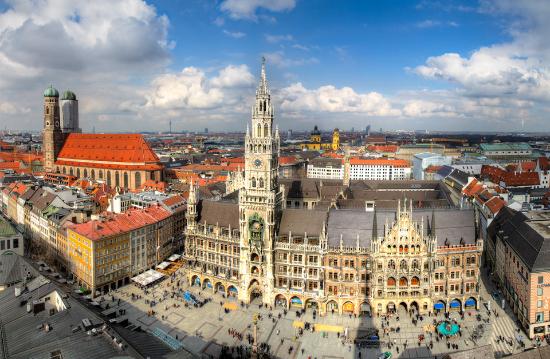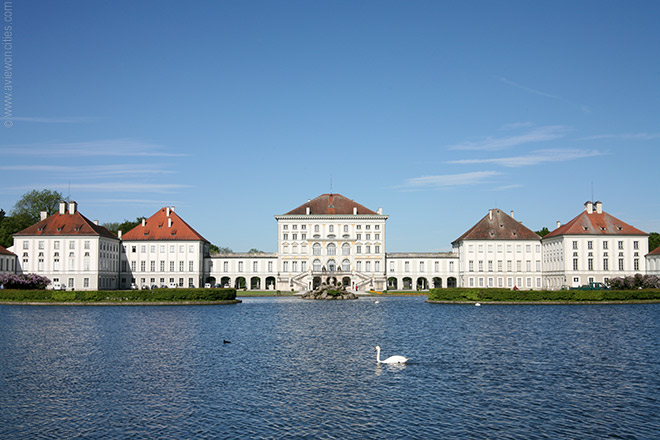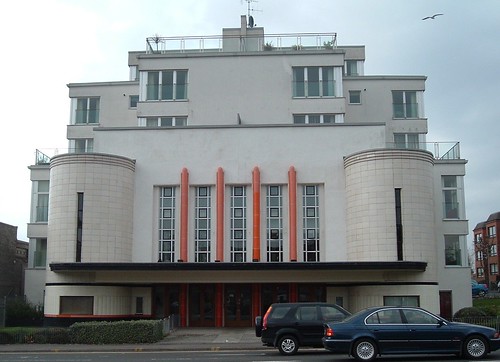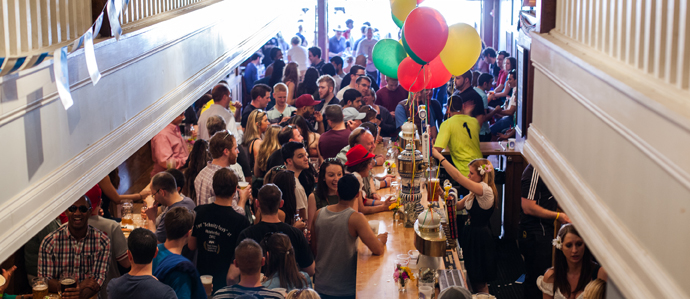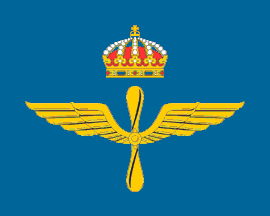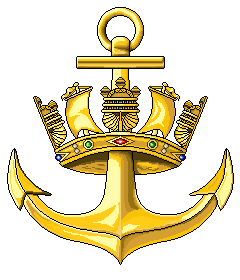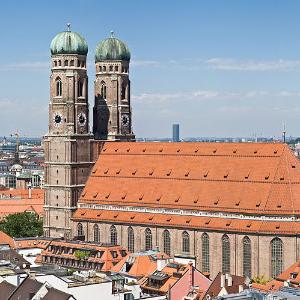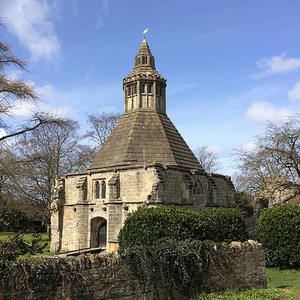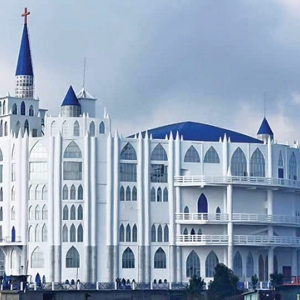2401
International Organisations / The Commonwealth Treaty; Signatories and Signups!
« on: August 28, 2017, 09:05:42 PM »
Welcome to the
Commonwealth Treaty Organisation
Commonwealth Treaty Organisation
Nations of Mundus,
We are the Commonwealth Treaty Organisation (CTO). We are an international organisation made up of sixteen nations, with four key principles:
1. To maintain international peace and security, and to that end: to take effective collective measures for the prevention and removal of threats to the peace, and for the suppression of acts of aggression or other breaches of the peace, and to bring about by peaceful means, and in conformity with the principles of justice and international law, adjustment or settlement of international disputes or situations which might lead to a breach of the peace;
2. To develop friendly relations among nations based on respect for the principle of equal rights and self-determination of peoples, and to take other appropriate measures to strengthen universal peace;
3.To achieve international co-operation in solving international problems of an economic, social, cultural, or humanitarian character, and in promoting and encouraging respect for human rights and for fundamental freedoms for all without distinction as to race, sex, language, or religion; and
4.To be a centre for harmonising the actions of nations in the attainment of these common ends.
In order to achieve our goals, the Commonwealth Treaty has established a number of bodies:
General Assembly: The General Assembly is the main deliberative, policymaking and representative organ of the CTO. All Member States of the CTO are represented in the General Assembly, making it the only CTO body with universal representation.
International Court of Justice: The International Court of Justice is the principal judicial organ of the Commonwealth Treaty Organisation. The Court’s role is to settle, in accordance with international law, legal disputes submitted to it by States and to give advisory opinions on legal questions referred to it by authorised CTO organs and specialized agencies.
Secretariat: The Secretariat comprises the President, the Head of the Civil Service and tens of thousands of international CTO staff members who carry out the day-to-day work of the CTO as mandated by the General Assembly and the Organisation's other principal organs. The Head of the Civil Service is the chief administrative officer of the Organisation. The President is the international face of the organisation appointed in turn by member states in order of treaty signature.
Key positions
Secretary-General: Sakura Sheppard (Achkaerin)
Deputy Secretary-General:
Lead Health Advisor, Mundus Health Organisation: Dr Danny Byrne (Achkaerin)
Chair of Mundus Refugee Council: Melissa Lusk (East Moreland)
Chief Constable Mundus Crime Agency: Amber Duff (Achkaerin)
Treaty
Spoiler: Text of Treaty • show
Hosted at Aldspring, Estvua Prefecture, Rokkenjima January 26th, 2015
Signed at Aldspring, Estvua Prefecture, Rokkenjima January 30th, 2015
Proclaimed by the Signatories January 31st, 2015
Entered into force February 2nd, 2015
WE THE PEOPLES OF THE COMMONWEALTH TREATY ORGANISATION DETERMINED
to save succeeding generations from the scourge of war, and
to reaffirm faith in fundamental human rights, in the dignity and worth of the human person, in the equal rights of men and women and of nations large and small, and
to establish conditions under which justice and respect for the obligations arising from treaties and other sources of international law can be maintained, and
to promote social progress and better standards of life in larger freedom,
AND FOR THESE ENDS
To practice tolerance and live together in peace with one another as good neighbours, and
To unite our strength to maintain international peace and security, and
To ensure, by the acceptance of principles and the institution of methods, that armed force shall not be used, save in the common interest, and
To employ international machinery for the promotion of the economic and social advancement of all peoples,
HAVING RESOLVED TO COMBINE OUR EFFORTS TO ACCOMPLISH THESE AIMS
Accordingly, our respective Governments, through representatives assembled in the city of Aldspring, who have exhibited their full powers found to be in good and due form, have agreed to the present Charter of the Commonwealth Treaty Organisation and do hereby establish an international organisation to be known as the Commonwealth Treaty Organisation.
Chapter I - Purposes and Principles
Article 1
The Purposes of the Commonwealth Treaty Organisation are:
1. To maintain international peace and security, and to that end: to take effective collective measures for the prevention and removal of threats to the peace, and for the suppression of acts of aggression or other breaches of the peace, and to bring about by peaceful means, and in conformity with the principles of justice and international law, adjustment or settlement of international disputes or situations which might lead to a breach of the peace;
2. To develop friendly relations among nations based on respect for the principle of equal rights and self-determination of peoples, and to take other appropriate measures to strengthen universal peace;
3. To achieve international co-operation in solving international problems of an economic, social, cultural, or humanitarian character, and in promoting and encouraging respect for human rights and for fundamental freedoms for all without distinction as to race, sex, language, or religion; and
4. To be a centre for harmonising the actions of nations in the attainment of these common ends.
Article 2
The Organisation and its Members, in pursuit of the Purposes stated in Article 1, shall act in accordance with the following Principles.
1. The Organisation is based on the principle of sovereign equality of all its Members.
2. All Members, in order to ensure to all of them the rights and benefits resulting from membership, shall fulfil in good faith the obligations assumed by them in accordance with the present Charter.
3. All Members shall settle their international disputes by peaceful means in such a manner that international peace and security, and justice, are not endangered.
4. All Members shall refrain in their international relations from the threat or use of force against the territorial integrity or political independence of any state, or in any other manner inconsistent with the Purposes of the Commonwealth Treaty Organisation.
5. All Members shall give the Commonwealth Treaty Organisation every assistance in any action it takes in accordance with the present Charter, and shall refrain from giving assistance to any state against which the Commonwealth Treaty Organisation is taking preventive or enforcement action.
6. The Organisation shall ensure that states which are not Members of the Commonwealth Treaty Organisation act in accordance with these Principles so far as may be necessary for the maintenance of international peace and security.
7. Nothing contained in the present Charter shall authorise the Commonwealth Treaty Organisation to intervene in matters which are essentially within the domestic jurisdiction of any state or shall require the Members to submit such matters to settlement under the present Charter; but this principle shall not prejudice the application of enforcement measures under Chapter VI.
Chapter II - Membership
Article 3
The original Members of the Commonwealth Treaty Organisation shall be the states which, having participated in the Commonwealth Treaty Organisation Conference on International Organisation at Aldspring, or having previously signed the Declaration by Commonwealth Treaty Organisation of 30th January 2015, sign the present Charter and ratify it in accordance with Article 61.
Article 4
1. Membership in the Commonwealth Treaty Organisation is open to all other peace-loving states which accept the obligations contained in the present Charter and, in the judgment of the Organisation, are able and willing to carry out these obligations.
2. The admission of any such state to membership in the Commonwealth Treaty Organisation will be effected by a decision of the General Assembly following consultation with the International Court of Justice.
Article 5
1. A nation may request admission to the Commonwealth Treaty Organisation as an observer member. The applicant nation must be a sovereign nation, determined by meeting the test outlined in article one of General Assembly Resolution #0004 that three members support the sovereign rights of the applicant nation. Admission of observer members shall be handled by a vote of the General Assembly.
2. Observer nations shall have the following rights and responsibilities
a) an observer nation must abide by the Commonwealth Treaty.
b) an observer nation may participate in debating sessions of the General Assembly but may not vote.
c) an observer nation may join in full any CTO subsidiary organisation.
d) an observer nation may appoint a judge to the International Court of Justice
e) a native citizen of an observer nation may not be President of the CTO.
Article 6
1. A Member of the Commonwealth Treaty Organisation against which preventive or enforcement action has been taken by the General Assembly may be suspended from the exercise of the rights and privileges of membership by the General Assembly upon the recommendation of the Security Council. The exercise of these rights and privileges may be restored by the General Assembly.
2. A Member of the Commonwealth Treaty Organisation which has persistently violated the Principles contained in the present Charter may be expelled from the Organisation by the President upon the recommendation and consultation of the General Assembly.
Chapter III - Organs
Article 7
1. There are established as the principal organs of the Commonwealth Treaty Organisation:
a General Assembly
a International Court of Justice
a Secretariat
2. Such subsidiary organs as may be found necessary may be established in accordance with the present Charter.
Article 8
The Commonwealth Treaty Organisation shall place no restrictions on the eligibility of men and women to participate in any capacity and under conditions of equality in its principal and subsidiary organs.
Chapter IV - The General Assembly
Composition
Article 9
1. The General Assembly shall consist of all the Members of the Commonwealth Treaty Organisation.
2. Each Member shall have not more than five representatives in the General Assembly.
Functions and Powers
Article 10
The General Assembly may discuss any questions or any matters within the scope of the present Charter or relating to the powers and functions of any organs provided for in the present Charter, and may make recommendations to the Members of the Commonwealth Treaty Organisation on any such questions or matters.
Article 11
1. The General Assembly may consider the general principles of co-operation in the maintenance of international peace and security, including the principles governing disarmament and the regulation of armaments, and may make recommendations with regard to such principles to the Members.
2. The General Assembly may discuss any questions relating to the maintenance of international peace and security brought before it by any Member of the Commonwealth Treaty Organisation, or by a state which is not a Member of the Commonwealth Treaty Organisation in accordance with Article 22, paragraph 2, and may make recommendations with regard to any such questions to the state or states concerned. Any such question on which action is necessary shall be discussed by the General Assembly either during or after the initial discussion of the issue as presented.
3. A member of the CTO or the President may call the attention of the General Assembly to situations which are likely to endanger international peace and security.
4. The powers of the General Assembly set forth in this Article shall not limit the general scope of Article 10.
Article 12
The General Assembly may recommend measures for the peaceful adjustment of any situation, regardless of origin, which it deems likely to impair the general welfare or friendly relations among nations, including situations resulting from a violation of the provisions of the present Charter setting forth the Purposes and Principles of the Commonwealth Treaty Organisation.
Article 13
1. The General Assembly shall maintain annual and special reports from of its sessions; these reports shall include an account of the measures that the Assembly has decided upon or taken to maintain international peace and security.
2. The General Assembly shall receive and consider reports from the other organs and subsidiary bodies of the Commonwealth Treaty Organisation.
Article 14
1. The General Assembly shall consider and approve the budget of the Organisation.
2. The expenses of the Organisation shall be borne by the Members as apportioned by the General Assembly.
3. The General Assembly shall consider and approve any financial and budgetary arrangements with specialised agencies referred to in Article 44 and shall examine the administrative budgets of such specialised agencies with a view to making recommendations to the agencies concerned.
Voting
Article 15
1. Each member of the General Assembly shall have one vote.
2. Decisions of the General Assembly on important questions shall be made by a majority of the members present and voting. These questions shall include: recommendations with respect to the maintenance of international peace and security, the suspension of the rights and privileges of membership, the expulsion of Members, and budgetary questions.
3. Decisions on other questions, including the determination of additional categories of questions shall be made by a majority of the members present and voting.
4. In the event of a tied vote the Head of the Civil Service shall have the casting vote.
Article 16
A Member of the Commonwealth Treaty Organisation which is in arrears in the payment of its financial contributions to the Organisation shall have no vote in the General Assembly if the amount of its arrears equals or exceeds the amount of the contributions due from it for the preceding two full years. The General Assembly may, nevertheless, permit such a Member to vote if it is satisfied that the failure to pay is due to conditions beyond the control of the Member.
Procedure
Article 17
The General Assembly shall meet in regular annual sessions and in such special sessions as circumstances may require. Special sessions shall be convened by the President at the request of the Head of the Civil Service or of a majority of the Members of the Commonwealth Treaty Organisation.
Article 18
The General Assembly may establish such subsidiary organs as it deems necessary for the performance of its functions.
Chapter V - Pacific Settlement of Disputes
Article 19
1. The parties to any dispute, the continuance of which is likely to endanger the maintenance of international peace and security, shall, first of all, seek a solution by negotiation, inquiry, mediation, conciliation, arbitration, judicial settlement, resort to regional agencies or arrangements, or other peaceful means of their own choice.
2. The General Assembly shall, when it deems necessary, call upon the parties to settle their dispute by such means.
Article 20
The General Assembly may investigate any dispute, or any situation which might lead to international friction or give rise to a dispute, in order to determine whether the continuance of the dispute or situation is likely to endanger the maintenance of international peace and security.
Article 21
1. Any Member of the Commonwealth Treaty Organisation may bring any dispute, or any situation of the nature referred to in Article 33, to the attention of the General Assembly.
2. A state which is not a Member of the Commonwealth Treaty Organisation may bring to the attention of the General Assembly any dispute to which it is a party if it accepts in advance, for the purposes of the dispute, the obligations of pacific settlement provided in the present Charter.
3. The proceedings of the General Assembly in respect of matters brought to its attention under this Article will be subject to the provisions of Article 11.
Article 22
1. The General Assembly may, at any stage of a dispute of the nature referred to in Article 20 or of a situation of like nature, recommend appropriate procedures or methods of adjustment.
2. The General Assembly should take into consideration any procedures for the settlement of the dispute which have already been adopted by the parties.
3. In making recommendations under this Article the General Assembly should also take into consideration that legal disputes should as a general rule be referred by the parties to the International Court of Justice in accordance with the provisions of the Statute of the Court.
Article 23
1. Should the parties to a dispute of the nature referred to in Article 20 fail to settle it by the means indicated in that Article, they shall refer it to the General Assembly.
2. If the General Assembly deems that the continuance of the dispute is in fact likely to endanger the maintenance of international peace and security, it shall decide whether to take action under Article 35 or to recommend such terms of settlement as it may consider appropriate.
Article 24
Without prejudice to the provisions of Articles 19 to 22, the General Assembly may, if all the parties to any dispute so request, make recommendations to the parties with a view to a pacific settlement of the dispute.
Chapter VI- Action with Respect to Threats to the Peace, Breaches of the Peace and Acts of Aggression
Article 25
The General Assembly shall determine the existence of any threat to the peace, breach of the peace, or act of aggression and shall make recommendations, or decide what measures shall be taken in accordance with Articles 27 and 28, to maintain or restore international peace and security.
Article 26
In order to prevent an aggravation of the situation, the General Assembly may, before making the recommendations or deciding upon the measures provided for in Article 25, call upon the parties concerned to comply with such provisional measures as it deems necessary or desirable. Such provisional measures shall be without prejudice to the rights, claims, or position of the parties concerned. The General Assembly shall duly take account of failure to comply with such provisional measures.
Article 27
The General Assembly may decide what measures not involving the use of armed force are to be employed to give effect to its decisions, and it may call upon the Members of the Commonwealth Treaty Organisation to apply such measures. These may include complete or partial interruption of economic relations and of rail, sea, air, postal, telegraphic, radio, and other means of communication, and the severance of diplomatic relations.
Article 28
Should the General Assembly consider that measures provided for in Article 27 would be inadequate or have proved to be inadequate, it may take such action by air, sea, or land forces as may be necessary to maintain or restore international peace and security. Such action may include demonstrations, blockade, and other operations by air, sea, or land forces of Members of the Commonwealth Treaty Organisation.
Article 29
1. All Members of the Commonwealth Treaty Organisation, in order to contribute to the maintenance of international peace and security, undertake to make available to the Commonwealth, on its call and in accordance with a special agreement or agreements, armed forces, assistance, and facilities, including rights of passage, necessary for the purpose of maintaining international peace and security.
2. Such agreement or agreements shall govern the numbers and types of forces, their degree of readiness and general location, and the nature of the facilities and assistance to be provided.
3. The agreement or agreements shall be negotiated as soon as possible on the initiative of the Secretariat. They shall be concluded between the Secretariat and Members or between the Secretariat and groups of Members and shall be subject to ratification by the signatory states in accordance with their respective constitutional processes.
Article 30
1. When the General Assembly has decided to use force it shall as part of the Mandate Resolution include a provision identifying those nations prepared to contribute to the force as well as the specifics of that force i.e. troops on the ground, planes in the air, humanitarian supplies etc.
2. A member or members of the CTO, the President, the Head of the Civil Service or other official have the right to bring to the attention of the General Assembly nations who are available to assist with CTO mandated operations.
3. The General Assembly may determine any consequences in circumstances where it is found that a nation with the capability to assist in such operations was unwilling to do so. This shall also extend to circumstances where the expectation of support has been relied upon and it has not materialized.
4. When the General Assembly has decided to use force it shall, before calling upon a Member not represented on it to provide armed forces in fulfilment of the obligations assumed under Article 29, invite that Member, if the Member so desires, to participate in the decisions of the General Assembly concerning the employment of contingents of that Member's armed forces.
Article 31
In order to enable the Commonwealth Treaty Organisation to take urgent military measures, Members shall hold immediately available national air-force contingents for combined international enforcement action. The strength and degree of readiness of these contingents and plans for their combined action shall be determined within the limits laid down in the special agreement or agreements referred to in Article 29, by the General Assembly.
Article 32
Plans for the application of armed force shall be made by the General Assembly in closed session.
Article 33
1. The action required to carry out the decisions of the General Assembly for the maintenance of international peace and security shall be taken by all the Members of the Commonwealth Treaty Organisation or by some of them, as the Assembly may determine.
2. Such decisions shall be carried out by the Members of the Commonwealth Treaty Organisation directly and through their action in the appropriate international agencies of which they are members.
Article 34
The Members of the Commonwealth Treaty Organisation shall join in affording mutual assistance in carrying out the measures decided upon by the General Assembly.
Article 35
If preventive or enforcement measures against any state are taken by the Commonwealth, any other state, whether a Member of the Commonwealth Treaty Organisation or not, which finds itself confronted with special economic problems arising from the carrying out of those measures shall have the right to consult the General Assembly or Secretariat with regard to a solution of those problems.
Article 36
Nothing in the present Charter shall impair the inherent right of individual or collective self-defence if an armed attack occurs against a Member of the Commonwealth Treaty Organisation, until the General Assembly has taken measures necessary to maintain international peace and security. Measures taken by Members in the exercise of this right of self-defence shall be immediately reported to the Assembly and shall not in any way affect the authority and responsibility of the Assembly under the present Charter to take at any time such action as it deems necessary in order to maintain or restore international peace and security.
Chapter VII- Regional Arrangements
Article 37
1. Nothing in the present Charter precludes the existence of regional arrangements or agencies for dealing with such matters relating to the maintenance of international peace and security as are appropriate for regional action provided that such arrangements or agencies and their activities are consistent with the Purposes and Principles of the Commonwealth Treaty Organisation.
2. The Members of the Commonwealth Treaty Organisation entering into such arrangements or constituting such agencies shall make every effort to achieve pacific settlement of local disputes through such regional arrangements or by such regional agencies before referring them to the General Assembly.
3. The General Assembly shall encourage the development of pacific settlement of local disputes through such regional arrangements or by such regional agencies either on the initiative of the states concerned or by reference from the Secretariat
4. This Article in no way impairs the application of Articles 20 and 21.
Article 38
1. The General Assembly shall, where appropriate, utilise such regional arrangements or agencies for enforcement action under its authority. But no enforcement action shall be taken under regional arrangements or by regional agencies without the authorisation of the Security Council.
Article 39
The General Assembly shall at all times be kept fully informed of activities undertaken or in contemplation under regional arrangements or by regional agencies for the maintenance of international peace and security.
Chapter VIII- International Economic and Social Co-operation
Article 40
With a view to the creation of conditions of stability and well-being which are necessary for peaceful and friendly relations among nations based on respect for the principle of equal rights and self-determination of peoples, the Commonwealth Treaty Organisation shall promote:
a. higher standards of living, full employment, and conditions of economic and social progress and development;
b. solutions of international economic, social, health, and related problems; and international cultural and educational cooperation; and
c. Universal respect for, and observance of, human rights and fundamental freedoms for all without distinction as to race, sex, language, or religion.
Article 41
All Members pledge themselves to take joint and separate action in co-operation with the Organisation for the achievement of the purposes set forth in Article 40.
Article 42
The Organisation shall, where appropriate, initiate negotiations among the states concerned for the creation of any new specialised agencies required for the accomplishment of the purposes set forth in Article 40.
Article 43
Responsibility for the discharge of the functions of the Organisation set forth in this Chapter shall be vested in the General Assembly.
Chapter IX- The International Court of Justice
Article 44
The International Court of Justice shall be the principal judicial organ of the Commonwealth Treaty Organisation. It shall function in accordance with the annexed Statute, which is based upon the Statute of the Permanent Court of International Justice and forms an integral part of the present Charter.
Article 45
1. All Members of the Commonwealth Treaty Organisation are ipso facto parties to the Statute of the International Court of Justice.
2. A state which is not a Member of the Commonwealth Treaty Organisation may become a party to the Statute of the International Court of Justice on conditions to be determined in each case by the General Assembly.
Article 46
1. Each Member of the Commonwealth Treaty Organisation undertakes to comply with the decision of the International Court of Justice in any case to which it is a party.
2. If any party to a case fails to perform the obligations incumbent upon it under a judgment rendered by the Court, the other party may have recourse to the General Assembly, which may, if it deems necessary, make recommendations or decide upon measures to be taken to give effect to the judgment.
Article 47
Nothing in the present Charter shall prevent Members of the Commonwealth Treaty Organisation from entrusting the solution of their differences to other tribunals by virtue of agreements already in existence or which may be concluded in the future.
Article 48
1. The General Assembly or the Secretariat may request the International Court of Justice to give an advisory opinion on any legal question.
2. Other organs of the Commonwealth Treaty Organisation and specialised agencies, which may at any time be so authorised by the General Assembly, may also request advisory opinions of the Court on legal questions arising within the scope of their activities.
Chapter X- The Secretariat
Article 49
The Secretariat shall comprise a President, Head of the Civil Service and such staff as the Organisation may require. The President shall be appointed for a term of three years on a rotary cycle in order of signature of the Commonwealth Treaty, and may be removed from office with the concurrence of two-thirds of the members of the General Assembly. He shall be the international representative of the Organisation.
Article 50
The Head of the Civil Service shall be the chief administrator of the organisation. He shall act in that capacity in all meetings of the General Assembly, and shall perform such other functions as are entrusted to him by these organs. The Head of the Civil Service shall make an annual report to the General Assembly on the work of the Organisation.
Article 51
The President may bring to the attention of the General Assembly any matter which in his opinion may threaten the maintenance of international peace and security.
Article 52
1. In the performance of their duties the President, Head of Civil Service and the staff shall not seek or receive instructions from any government or from any other authority external to the Organisation. They shall refrain from any action which might reflect on their position as international officials responsible only to the Organisation.
2. Each Member of the Commonwealth Treaty Organisation undertakes to respect the exclusively international character of the responsibilities of the Secretariat staff and not to seek to influence them in the discharge of their responsibilities.
Article 53
1. The staff shall be appointed by the Head of the Civil Service following the consultation of the President. Appropriate staffs shall be permanently assigned to the organs of the Commonwealth Treaty Organisation, as required.
2. These staffs shall form a part of the Secretariat.
3. The paramount consideration in the employment of the staff and in the determination of the conditions of service shall be the necessity of securing the highest standards of efficiency, competence, and integrity. Due regard shall be paid to the importance of recruiting the staff on as wide a geographical basis as possible but not to the detriment of the efficiency and competency of the organisation.
Chapter XI- Miscellaneous Provisions
Article 54
1. Every treaty and every international agreement entered into by any Member of the Commonwealth Treaty Organisation after the present Charter comes into force shall as soon as possible be registered with the Secretariat and published by it.
2. No party to any such treaty or international agreement which has not been registered in accordance with the provisions of paragraph 1 of this Article may invoke that treaty or agreement before any organ of the Commonwealth Treaty Organisation.
Article 55
In the event of a conflict between the obligations of the Members of the Commonwealth Treaty Organisation under the present Charter and their obligations under any other international agreement, their obligations under the present Charter shall prevail.
Article 56
The Organisation shall enjoy in the territory of each of its Members such legal capacity as may be necessary for the exercise of its functions and the fulfilment of its purposes.
Article 57
1. The Organisation shall enjoy in the territory of each of its Members such privileges and immunities as are necessary for the fulfilment of its purposes.
2. Representatives of the Members of the Commonwealth Treaty Organisation and officials of the Organisation shall similarly enjoy such privileges and immunities as are necessary for the independent exercise of their functions in connexion with the Organisation.
3. The General Assembly may make recommendations with a view to determining the details of the application of paragraphs 1 and 2 of this Article or may propose conventions to the Members of the Commonwealth Treaty Organisation for this purpose.
Chapter XII- Amendments
Article 58
Amendments to the present Charter shall come into force for all Members of the Commonwealth Treaty Organisation when they have been adopted by a vote of the members of the General Assembly and ratified in accordance with their respective constitutional processes by two-thirds of the Members of the Commonwealth Treaty Organisation.
Article 59
1. A General Conference of the Members of the Commonwealth Treaty Organisation for the purpose of reviewing the present Charter may be held at a date and place to be fixed by a two-thirds vote of the members of the General Assembly.
Article 60
1. A General Conference of the Members of the Commonwealth Treaty Organisation for the purpose of reviewing the present Charter may be held at a date and place to be fixed by a two-thirds vote of the members of the General Assembly.
2.Each Member of the Commonwealth Treaty Organisation shall have one vote in the conference.
3. Any alteration of the present Charter recommended by a two-thirds vote of the conference shall take effect when ratified in accordance with their respective constitutional processes by two-thirds of the Members of the Commonwealth Treaty Organisation.
4. If such a conference has not been held before the tenth annual session of the General Assembly following the coming into force of the present Charter, the proposal to call such a conference shall be placed on the agenda of that session of the General Assembly, and the conference shall be held if so decided by a majority vote of the members of the General Assembly and by a vote of any seven members of the Security Council.
Chapter XIII- Ratification and Signature
Article 61
1. The present Charter shall be ratified by the signatory states in accordance with their respective constitutional processes.
2. The ratifications shall be deposited with the Head of the Civil Service who shall notify all the signatory states of each deposit as well as the President of the Organisation
Article 62
The present Charter shall remain deposited in the archives of the First Empire of Rokkenjima. Duly certified copies thereof shall be transmitted by that Government to the Governments of the other signatory states. IN FAITH WHEREOF the representatives of the Governments of the Commonwealth Treaty Organisation have signed the present Charter. DONE at the city of Aldspring the 2nd day of February, 2015.
CURRENT MEMBERS
| Country | Signature | Continent | Language 1 | Language 2 | Language 3 |
| First Empire of Rokkenjima | Her Imperial Majesty Empress Beatrice | Ardia | English | Rokkenjiman | Latin |
| Kingdom of Dartfordia | The Right Honourable Harold Saxon MP PC, Prime Minister | Albion | English | ||
| Republic of Lakhzovia | President Sachim Kadassa | Cotf Aranye | Lakhshan | English | |
| The Empire of Quintelia | King Ferdinand D. Aquino | Ardia | Filipino, English | Spanish, German | Indigenous Dialects |
| Kingdom of Tytor | Lord Joseph Cornwallis, Prime Minister | Albion | English | Floodwaterian Creole | Old Tytoric |
| The Empire Of Kindricks | Mr Erling Allen | Albion | English | Yoruba | |
CURRENT OBSERVERS
The Principality of Heyra
Sign Up
Code: [Select]
[b]Full Name of Country/Region:[/b] [e.g. Kingdom of iTunes, Democratic Republic of Google]
[b]Representative Signing:[/b] [Please include title as well as name]
[b]Continent:[/b] [Albion/Ardia/Cotf Aranye/Alba Karinya]
[b]First Language:[/b]
[b]Second Language:[/b]
[b]Additional Languages:[/b]



